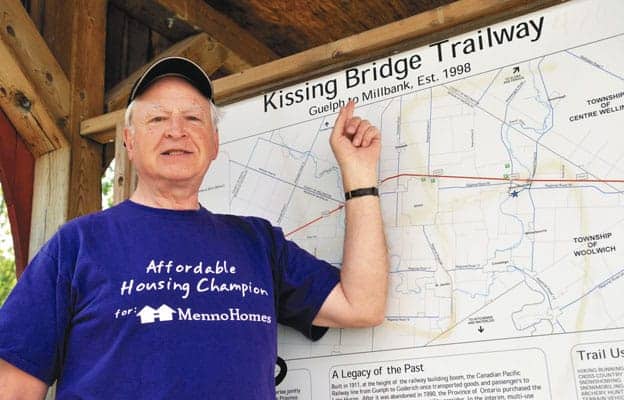All manner of well-meaning events have attempted to “make the arts come alive,” but this is a designation that the Fish Quill Poetry Boat tour may actually earn. Now entering its fourth year, the tour will see six performers bringing their poetry and music to towns all along the Grand River, travelling via canoe.
It’s an idea that gives new meaning to that old phrase, “poetry in motion.” Poets Leigh Kotsilidis and Linda Besner conceived of the tour in 2010 as they were discussing ways to bring their just-published poetry books to a broader audience.
“Before our books came out, we were talking about how touring in Canada through publishers, they always tend to hit the big cities,” said Kotsilidis. “We were trying to think of a way to bring our poetry to smaller communities.”
She continued, “You read poems on the page and it’s always different from hearing poems read aloud. We’re doing eight performances, and some poets will read the same poem more than once, and it’s always interesting to hear it again and again. It gives you a different insight into that particular piece.”
Kotsilidis and Besner will be joined by poets David Seymour, Gillian Savigny, and Stewart Cole, who are all bringing along their new poetry collections, along with London-based musician Grey Kingdom. After kicking off in Toronto on June 13, the tour will make stops at Elora, Waterloo, Cambridge, Paris, Brantford, and Six Nation’s Chiefswood National Historic Site. In Woolwich, the group will drop by the West Montrose covered bridge for a reading on June 16.
“We’ve almost come to see it as a conference, or a think-tank around poetry and music and art in Canada,” said Kotsilidis. “We do talk shop a lot. We talk a lot about our influences and how we see the role of poetry in our lives, and the struggles of being a writer – whether they be personal struggles in our own work, or how to make a living.”
More than just an opportunity to publicize books, Kotsilidis says they were looking for a way to make poetry itself inviting to those without experience with the form.
“People are intimidated by poetry and poetry readings often,” she said. “A lot of people have an attitude toward poetry that it’s inaccessible, or ‘high-culture’ or something along those lines.
“We thought a canoe would be a nice way to bring poetry, because it’s such a familiar symbol. A lot of people grew up around canoes, so we were trying to make poetry more accessible through that symbolism.”
Audiences can also expect the schedule to adapt to the location.
“Everywhere we go to, we try to bring local writers and musicians, because it’s about generating a conversation with these communities,” explained Kotsilidis. “Our idea isn’t just to come in and say, ‘Here’s our poetry, here’s our music.’ We’re trying to involve the people of these communities so it ends up being more of a dialogue, and more of an experience that we share.”
For the first year, the Fish Quill Poetry Boat will be partly funded via an online crowdsourcing campaign. Supporters can contribute a donation via the group’s Indiegogo page, www.indiegogo.com/projects/fish-quill-poetry-boat–2. More information can be found at fishquill.weebly.com.









